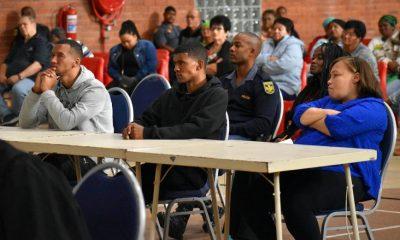News
Deepening Electricity Crisis Looms as South Africa Braces for Chilling Winter

South Africa finds itself in the midst of an energy crisis with frequent power outages, disproportionately impacting impoverished communities.
In the bustling Soweto township of Johannesburg, Nani Zondo operates her tailor business, offering creations made from African fabrics, as reported by Columbus Post.
However, the electricity crisis has severely hampered her work. “I can no longer accept jobs because I am limited to using my sewing machine for only an hour a day. Our income has been greatly affected by the electricity crisis,” she laments.
Also Read: South Africa’s Minister of Electricity admits lack of expertise in the field
South Africa implements daily power cuts lasting up to ten hours to prevent the national grid from collapsing, commonly known as “load shedding.” Last year alone, load shedding resulted in the loss of over 650,000 jobs, as the country’s electricity minister reported. The South African central bank estimates that the economy suffers losses exceeding 40 million Swiss francs each day.
The dire consequences of the electricity crisis are particularly felt by women like Nani Zondo residing in townships. They lack the means to afford their own backup power solutions. “Most of my neighbors struggle to afford even basic necessities. Buying a generator is a luxury. And let’s not forget the ongoing cost of fuel to run the generator,” Zondo explains.
Even the more affluent members of society are burdened by exorbitant expenses to power their generators. Supermarkets and hospitals have had to allocate substantial budgets for diesel fuel consumption.
Unfortunately, the challenges posed by the power crisis are far from over as South Africa braces for a cold winter. “We need to prepare because the situation will undoubtedly worsen,” warns Zondo.
During winter, temperatures often dip below freezing, necessitating the use of electricity for heating or costly alternatives such as gas stoves. South Africa anticipates the toughest times lie ahead.
The staggering cost of maintaining individual power backups in the country is astounding. From maintaining cold chains for supermarkets and mortuaries to dealing with the loss of internet connectivity during load shedding since phone masts rely on electricity, South Africans face a significant financial burden. Moreover, the issue of security looms large.
South Africa grapples with a high crime rate, leading many to fortify their homes with electric fences and alarm systems, which are rendered ineffective during power outages. Unlike other African nations without nationwide electricity grids, South Africa’s economy and society are heavily reliant on electricity. As the most industrialised country on the continent, reverting to a time when electricity was scarce poses immense challenges.
Overall, South Africa’s energy crisis presents a multifaceted problem impacting the economy, society, and the daily lives of its citizens.
Also Read:
Photo by Rahul





















